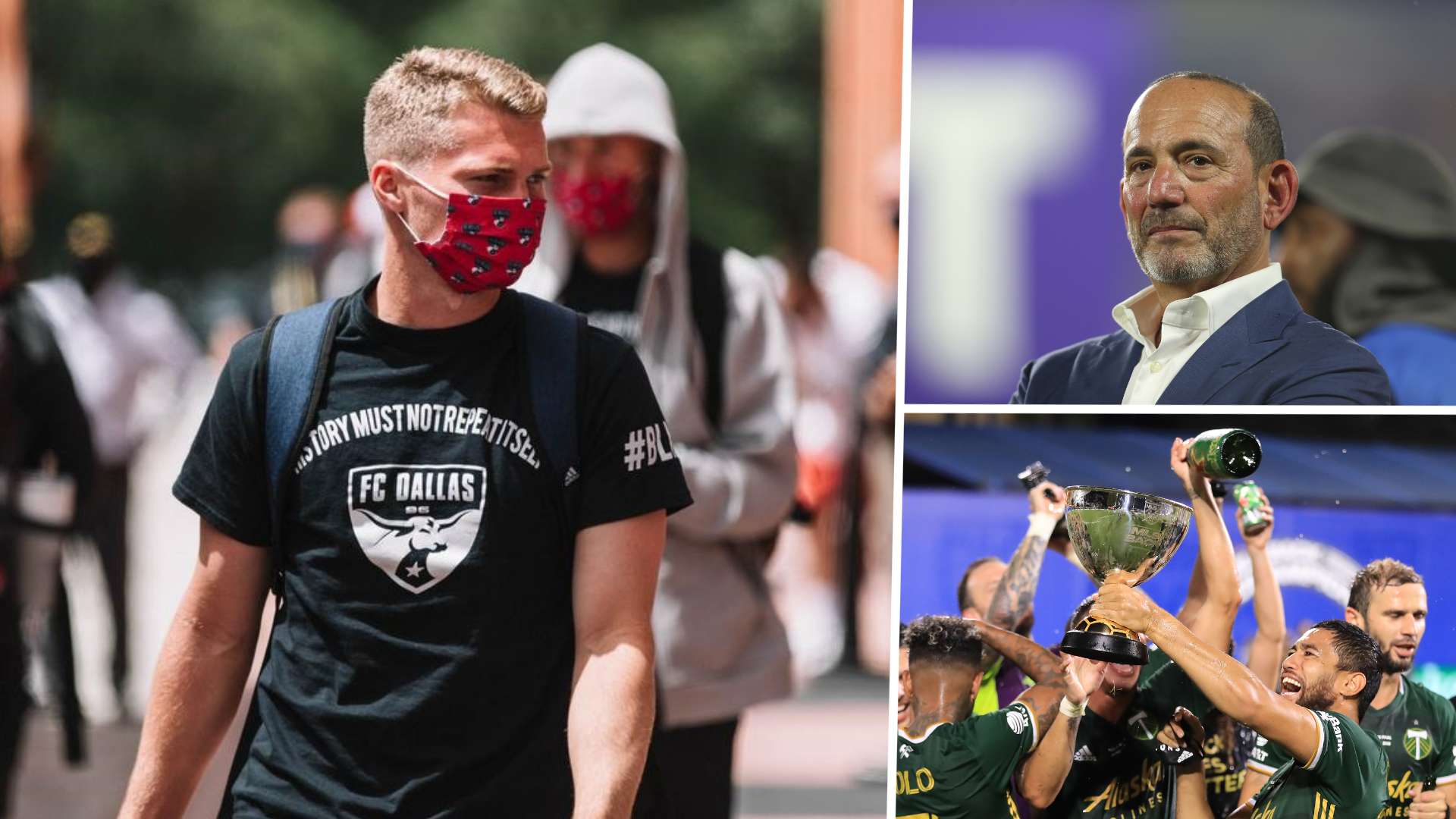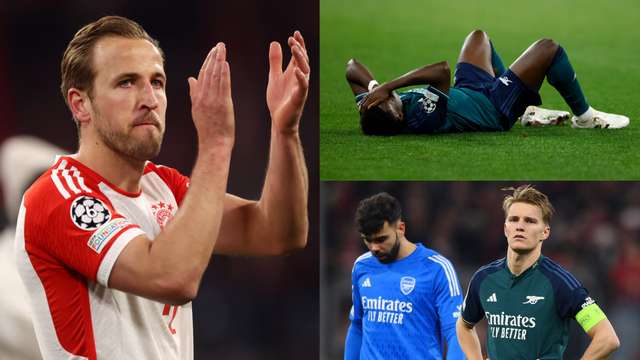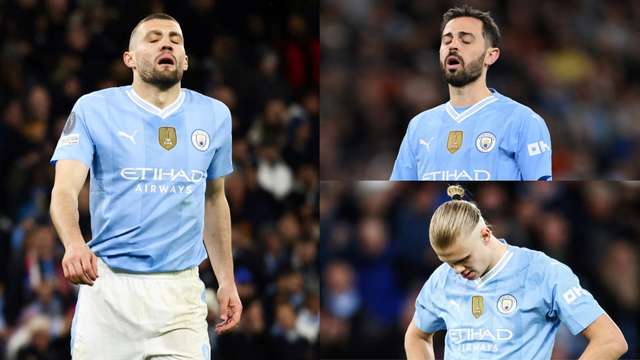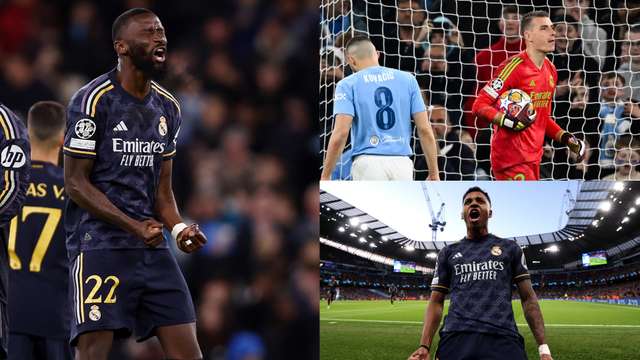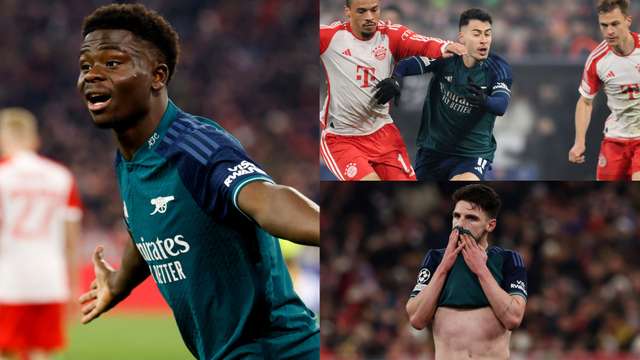How does the saying go? Fool me once, shame on you, but fool me twice, shame on me? It's a saying that very much applies to everyday life.
In this world, no one should be blamed for making a mistake, but making that same mistake again when you already know the potential consequences is unforgivable.
In recent weeks, Major League Baseball was fooled by the coronavirus, tricked into believing that taking safety precautions would be enough; that a bubble wasn't necessary. The league, one of the oldest and richest in the world, believed that they had a plan in place to mitigate the risk that comes with holding major sporting events in 2020. It hasn't worked.
And now, having seen that example, MLS is running the risk of being the second league to be fooled by that false sense of security. After successfully executing a bubble of their own, becoming the first major men's professional sports league to return to play in the U.S., MLS has decided to follow MLB's example, and even take it one step further by allowing a limited number of fans into stadiums.
As the league looks to find some form of normalcy, they do so with a plan that is, at best, risky. At worst, though, some aspects of the league's return are reckless, unnecessary and downright dangerous.
With the MLS is Back tournament now in the rearview mirror, the league recently announced that it will continue its regular season with a return to home markets.
That return will see each club play 18 additional regular-season games in a phased approach between Wednesday night's opener and a November 8 grand finale. The initial phase of that schedule has been announced, with each team facing off with six regionally-scheduled opponents, with the rest to be determined at a later date.
“We understand that getting back to play is going to have some challenges,” MLS commissioner Don Garber said. “We’re aware of those challenges, we’re prepared for it, understanding that it’s not going to be easy.
"We know that we might have issues that are going to disrupt us and force us to postpone games. We’re aware of the need to be flexible and we are aware that we’re entering a new normal for our industry."
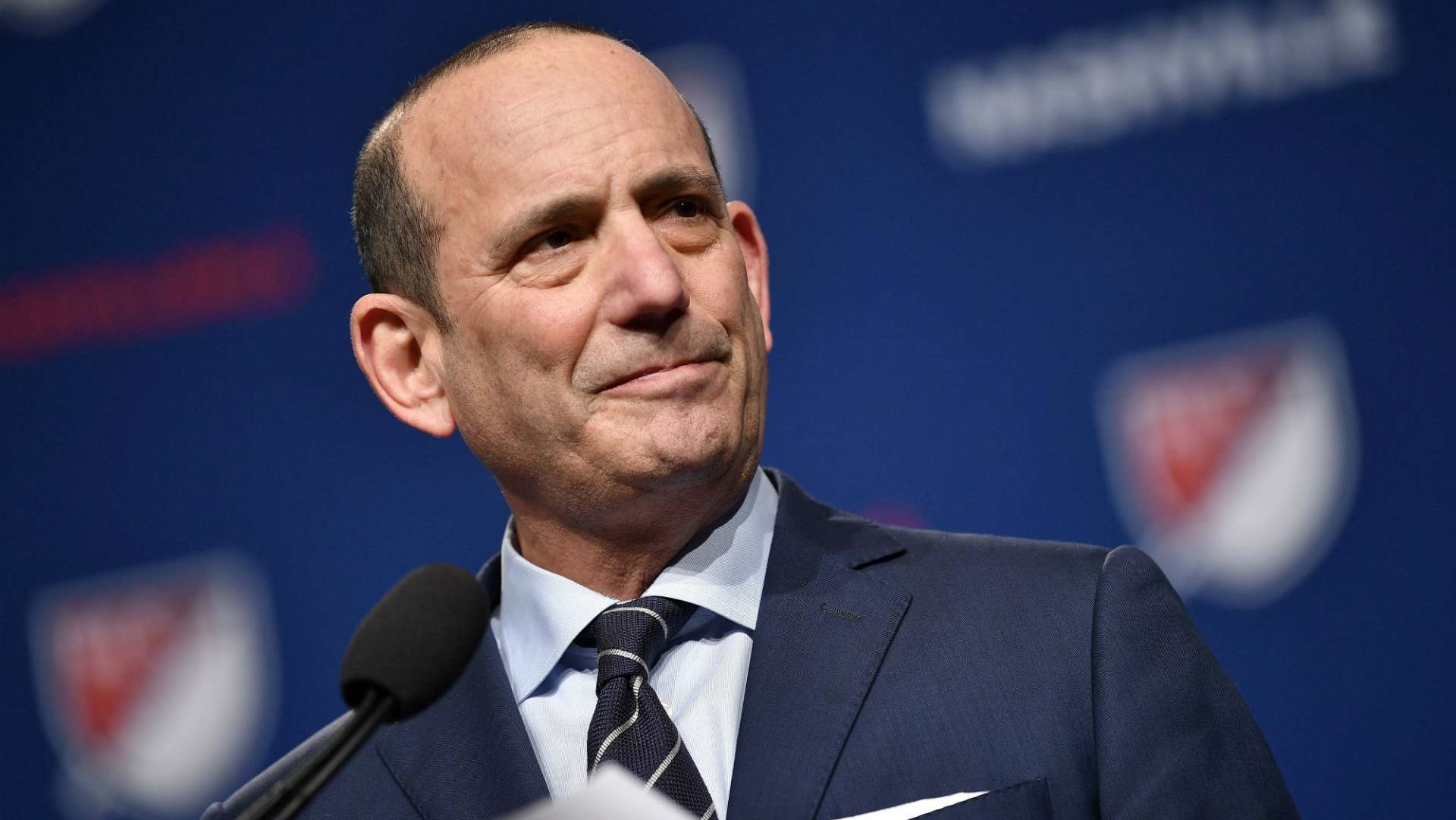 Andrew Nelles
Andrew Nelles
The league deserves credit for getting to this point, and American sports would be in no position to return to play if not for MLS and the NWSL, serving as guinea pigs for the rest of the country.
The two leagues proved that there was a way to make sport work if the league was isolated, confined and, most importantly, safe. The NBA, WNBA and NHL followed that example and, by and large, all three have found success with the bubble format.
Of the American sports so far, though, MLB has been the outlier. Instead of isolating, the league trudged on, playing games in home stadiums across the country. As the virus surged in several states that house baseball teams, the league acted as if it was business as usual. Until suddenly it wasn't.
In the few weeks since baseball's return, the league has seen several major issues. Both the Miami Marlins and St. Louis Cardinals had massive outbreaks within two weeks, with both teams forced out of play for days at a time. Entering this week, 29 games had been postponed, impacting a total of 11 teams. The outbreaks have created a scheduling nightmare and, more importantly, put players, staff and loved ones at risk.
It's not the only American sport facing some sort of crisis. Football, both of the professional and college variety, are continuously discussing what comes next for their sport.
The NFL has seen several players opt out of playing ahead of training camp, while college football, filled with amateur student-athletes, is currently the Wild West, as conferences have debated and discussed what is best for the students and, more importantly to most it seems, their wallets.
Now, the argument can and will be made that players are much safer under the constant care of team doctors than without, that all involved will be better protected by sticking together than by going about their everyday lives. There is an aspect of truth in the belief that this is what's best for all involved, but the best lies are those based on half-truths.
In total, over five million Americans have been diagnosed with the coronavirus, resulting in approximately 163,000 deaths at the time of writing. As countries all over the world seemingly see a light at the end of the tunnel, the U.S. may not even be all the way inside that tunnel. As a result, MLS's three Canadian teams will be unable to play their matches at home, with the country not allowing the American teams to cross the border.
The coronavirus is still raging throughout the U.S., hitting some states harder than others. Players traveling into and out of those Covid-19 hotspots is where the danger truly begins.
Let's look at Wednesday night's game as an example, as the two teams that were booted for the bubble will be charged with resuming the MLS season.
Nashville SC will leave Tennessee and face FC Dallas in Texas, a state that currently serves a hotspot for the ongoing pandemic. According to the New York Times, Texas has more cases per day than the United Kingdom, France, Germany, Italy and Spain combined.
Still, if that were the only issue, it would be a risk everyone would be prepared for. Players and staff are routinely tested, and chartered flights minimize the risk of interacting with the general public, even if minimizing can never be eliminating.
The decision to let fans in stadiums, meanwhile, is a different talking point entirely, one which now exposes everyone involved to unnecessary risk. It's one thing to play matches to fulfill obligations to sponsors. It's another to let fans back in.
Teams will say they're doing it with their fans in mind, to give them a reprieve from depressing quarantine period. But we all know the reason why those involved would want tickets to be sold.
FC Dallas, the team in that Texas hotspot that has already been kicked out of the bubble for too many positive tests, is selling tickets to their first match. The club announced it would cap attendees at 5,100 people, with ESPN reporting that five teams are considering allowing fans into matches.
Once again, though, MLS is second to this decision, following in the footsteps of the USL, the country's second-division. As countries throughout the rest of the world continue to keep fans out of stadiums, soccer in the U.S. is pushing on with the idea despite being the epicenter for a pandemic.
"There are a number of states in our country that are allowing a limited number of fans to sports events today," Garber said during a call with media, explaining that protocols required for teams to have fans in stadiums.
"Those clubs that are interested in welcoming fans where their states allow, we’ll consider it after they submit a plan and that plan is following the guidelines of our infectious disease doctor and following the protocols established by the states and by the CDC.
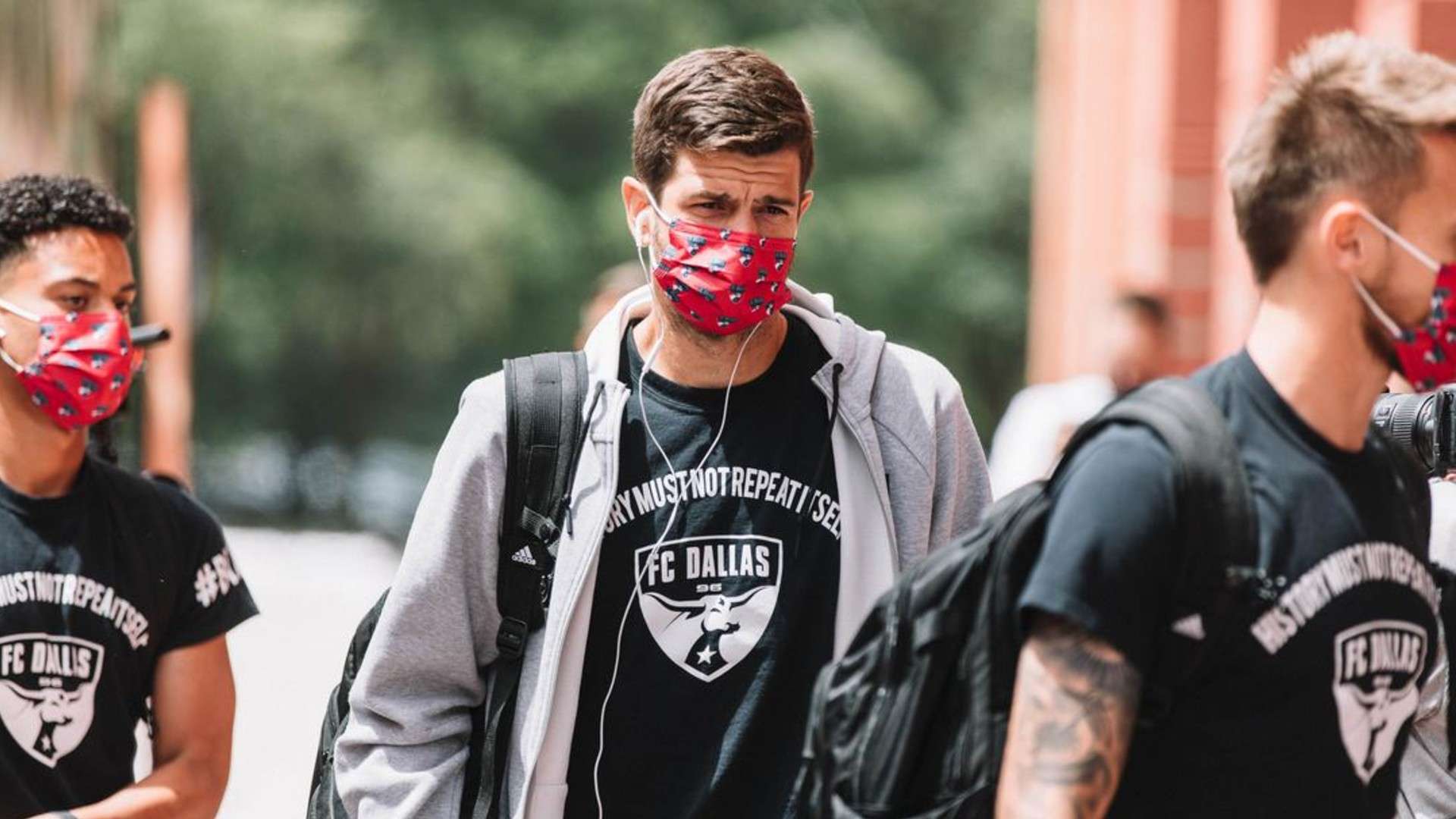 MLS
MLS
"In the event that it passes [those criteria], then we’ll consider it. No plan has been approved to date. That process is just starting. I don’t anticipate that it is going to be a lot of markets in phase one. That process is going to continue as more and more states either decide to allow fans for sports events or some states that have decided to allow them might change their mind."
FC Dallas vice president of media and communications Gina Miller added: "We polled our fans and more than half of [900] said that they would feel comfortable attending matches at Toyota Stadium.
"They indicated that what they missed more than anything was that sense of community, that camaraderie, that soccer experience."
As Garber said, the league will adhere to local regulations but, if you've lived in the U.S. in the past six months, you'll likely understand that local regulations are generally both uneven and reactive. It took months for some areas to mandate masks, and there are still plenty of government officials throughout the U.S. that have failed to properly acknowledge this pandemic as a problem.
“What we’re doing here is getting it started," Garber said. "We believe we have a good plan and we believe our players and our staff are focused on adhering to our protocols and if we’re able to do that we should be able to get our games in.
"If we can’t do that in a way that’s safe and one that’s ensuring the health of our players, then we’ll have to address it. If it doesn’t work, then we won’t move forward."
MLS has their plan and all involved hope it will work. Everyone on this planet is hoping that, someday, things will resort to some sort of normal. Sports fans are hoping to return to stadiums and sports executives are hoping to return to profitability after taking massive losses during all of this.
But that's the key word, isn't it? Hope. As much as you want something to work, it doesn't always go that way and, in a situation like this, there will always be risk involved.
Will the rewards outweigh that risk? Is this country ready for a plan like this? Will MLS learn from the mistakes of those that came before them and actually pull this thing off?
Everyone sure hopes so but, then again, we've all been fooled before.
